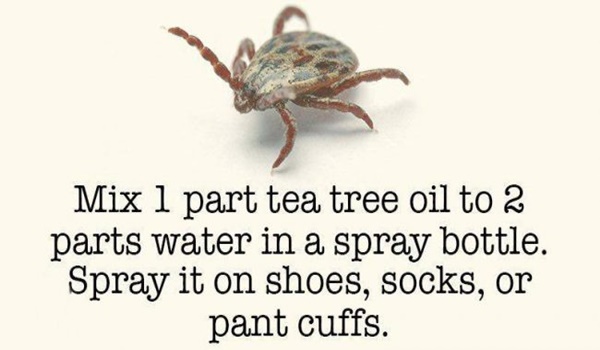During the spring and summer, we enjoy our time outdoors, staying up late in our yards, going to the beach, or taking a walk in the park. However, things can never be perfect, it seems!
When it comes to these two seasons, bugs are the biggest problem!
While many turn to commercial repellents to help them get rid of the insects, you should know that they are harmful, rich in dangerous chemicals, and might cause skin irritations, respiratory issues, coughing, upset stomach, and more.
On the other hand, there are completely natural bug sprays that are as effective but do not endanger the health of the entire family.
Essential oils are potent insect repellents, and many of them are especially effective in getting rid of specific pests. For instance, citronella, lemon, catnip, lavender, lemon eucalyptus, peppermint, eucalyptus, basil, clove, thyme, lemongrass, geranium and excellent for mosquitoes, juniper, thyme, oregano, and grapefruit are effective against ticks, and eucalyptus, tea tree oil, lemongrass, cedarwood, citronella, lavender, orange, pine, are powerful flea repellents.
Here is how to make your homemade all-purpose bug spray:
Ingredients:
- 10-12 drops of Citronella
- 10-12 drops of Eucalyptus
- 10 drops of Lavender
- 1-15 oz. bottle of witch hazel
- 10-12 drops of Lemongrass
Directions:
Divide the witch hazel into two small bottles, and add the other oils to them.
Close the bottles with the lid and shake well to mix the oils.
Then, use one of the sprays for outdoor use, and have the other one always with you. It smells great!
Shake before each use.
This natural repellent smells much better than a commercial one, it doesn’t feel sticky on your skin, and it does not harm your health nor the environment.
Give it a try!
Additionally, you can also try the following homemade tick repellent:
Ingredients:
- 1 part tea tree oil
- 2 parts of water
Directions:
Mix the ingredients in a spray bottle, mix well, and spray on shoes, socks, or pant cuffs to repel ticks.
If you have a pet, replace tea tree oil with peppermint, myrrh, cedarwood, marjoram, chamomile, lavender, or clary sage.

Tips:
- When using essential oils, always make a patch test before use to check for an allergic reaction.
- Avoid spraying on the face and touching the eyes and mouth if you have spray on the hands
- Make sure you consult a health practitioner before use in case you are pregnant or nursing.
- Be especially careful if you use them on young children. Spray onto their clothes if they are under 2.
- Apply as often as you need it.
- Store essential oils in dark-colored bottles, in a cool, dark place when not using.


